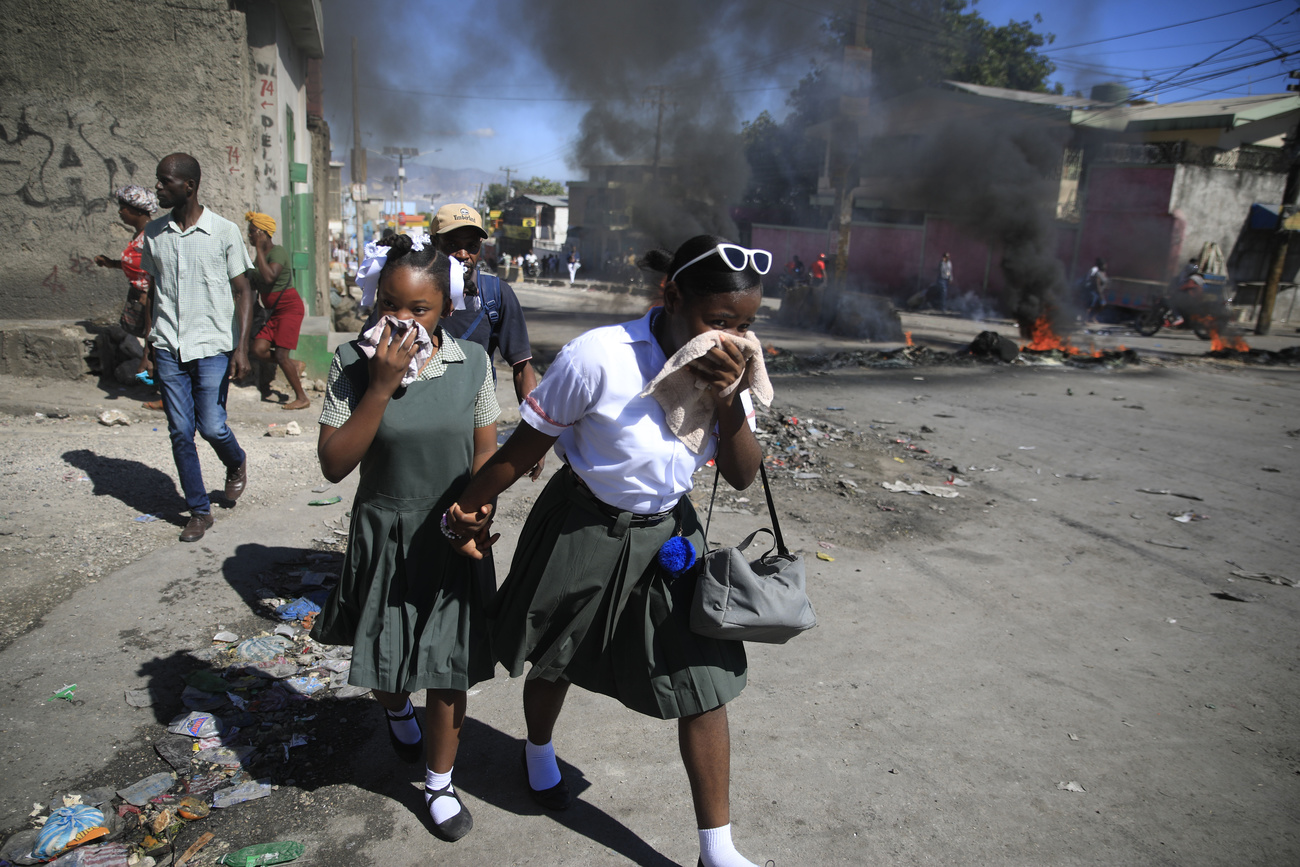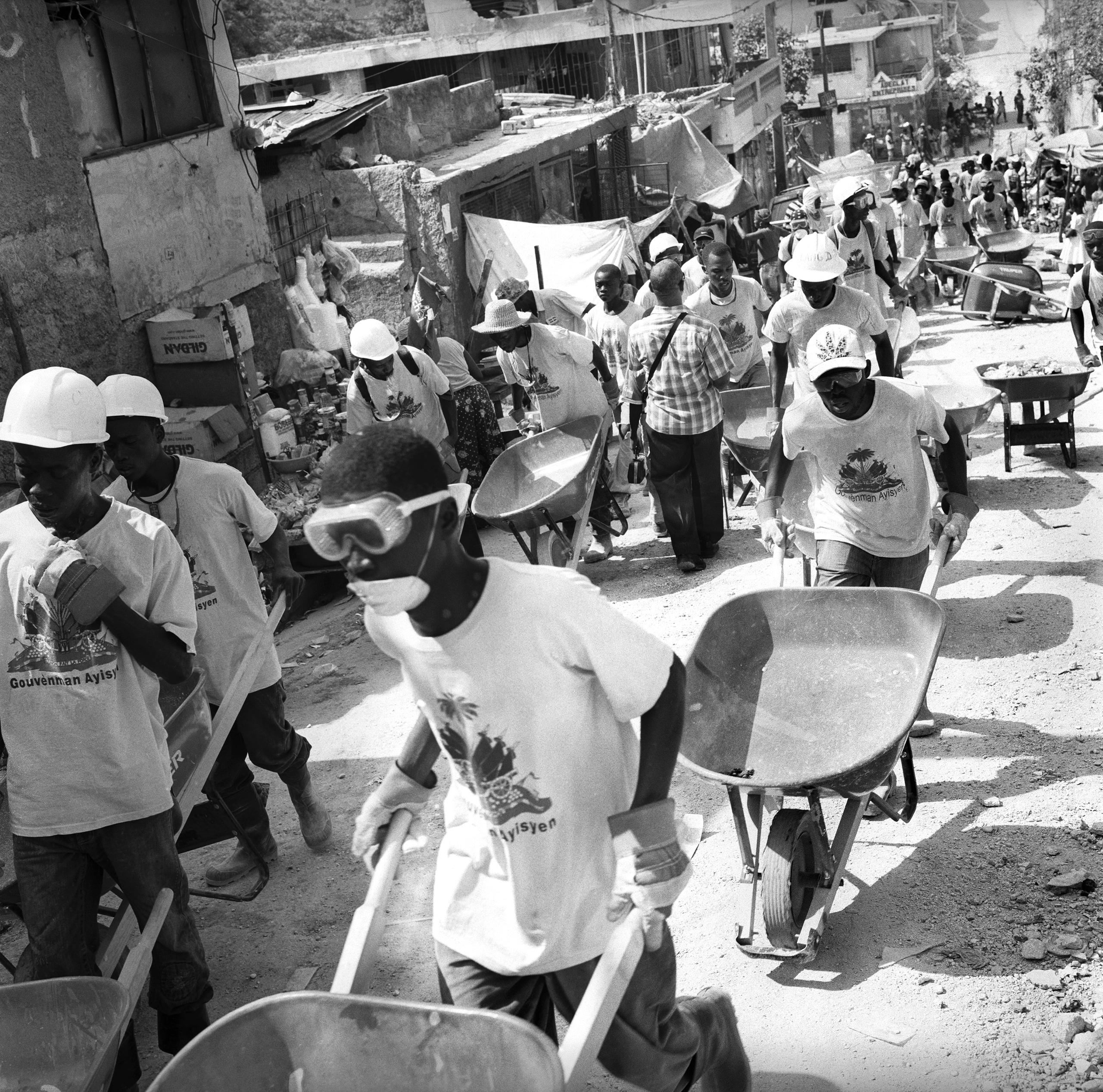
Swiss aid organisations continue to work in Haiti despite chaos

Swiss aid organisations have not left Haiti despite the prevailing chaos. Even though the capital Port-au-Prince has been exposed to violence by criminal gangs for several weeks, their work elsewhere is continuing as normal.
The relief organisation of the Protestant Reformed Church (Heks) has around 40 employees working in Haiti. Country director Marie-Jeanne Hautbois, the only foreigner, was evacuated on February 19. She is coordinating her teams from abroad.
Hautbois, who currently lives in France, told the Swiss News Agency Keystone-SDA that the escalating violence was particularly affecting the capital Port-au-Prince, its suburbs and the urban belt, as well as other towns such as Gonaïves in the north. Hautbois said Heks is active in the Grand’Anse department, in the extreme south-west of the divided island. The decentralised organisational structure is currently proving to be an advantage, she said.

More
As Switzerland leaves Haiti, Swiss NGOs fight to stay on
According to Hautbois, a large part of Haiti is relatively quiet and life is running almost smoothly. However, the areas are severely affected by restrictions on the movement of people and goods, supply bottlenecks and the constant rise in the price of basic foodstuffs.
The aid organisation Caritas has also suspended its activities in Port-au-Prince due to the increasing violence. However, a team is still on the ground in Cayes in the south of the country.
As a first measure, Helvetas moved its office from the capital to Jacmel, where the situation is still calm, according to a spokeswoman. The staff still working in Port-au-Prince limit their mobility to the bare minimum, she said.
A good 30 people are on site for Helvetas. The office manager fulfils his functions from abroad. The aid organisation is maintaining its water supply and rehabilitation projects as well as its employment programmes for young people.

More
Haiti: The perpetual liberation
Partners continue to work
Fastenaktion (formerly Fastenopfer) is concentrating its activities on the north of Haiti, where the rural areas have so far been largely spared from the gang violence, it said. Most of the local partner organisations will continue to work as usual.
Fastenaktion is currently supporting the local projects remotely with a local coordinator from Port-au-Prince. According to a spokesperson, this coordinator is currently forced to stay at home and not travel into the field.
Terre des Hommes Switzerland has relocated its staff from the capital to safer areas. According to the organisation, the employees already working in the south-east of the country are not directly affected by security risks.
Terre des Hommes Switzerland has a team of six local employees in Haiti. They work with partners in various schools. These colleagues have satellite communication to maintain contact in the event of a network failure, according to the organisation.
The Swiss Agency for Development and Cooperation (SDC) withdrew its international humanitarian office staff from Haiti at the end of March. With the help of France, it evacuated the people to Santo Domingo in the Dominican Republic, with which Haiti shares the island of Hispaniola.
In April, Switzerland released CHF1.4 million ($1.5 million) in emergency aid in view of the serious crisis in the Caribbean state. Haiti is plagued by gang violence and political instability. The foreign ministry has advised against travelling to the country since June 2022.
Translated from German by DeepL/ts
This news story has been written and carefully fact-checked by an external editorial team. At SWI swissinfo.ch we select the most relevant news for an international audience and use automatic translation tools such as DeepL to translate it into English. Providing you with automatically translated news gives us the time to write more in-depth articles.
If you want to know more about how we work, have a look here, and if you have feedback on this news story please write to english@swissinfo.ch.

In compliance with the JTI standards
More: SWI swissinfo.ch certified by the Journalism Trust Initiative





























You can find an overview of ongoing debates with our journalists here . Please join us!
If you want to start a conversation about a topic raised in this article or want to report factual errors, email us at english@swissinfo.ch.